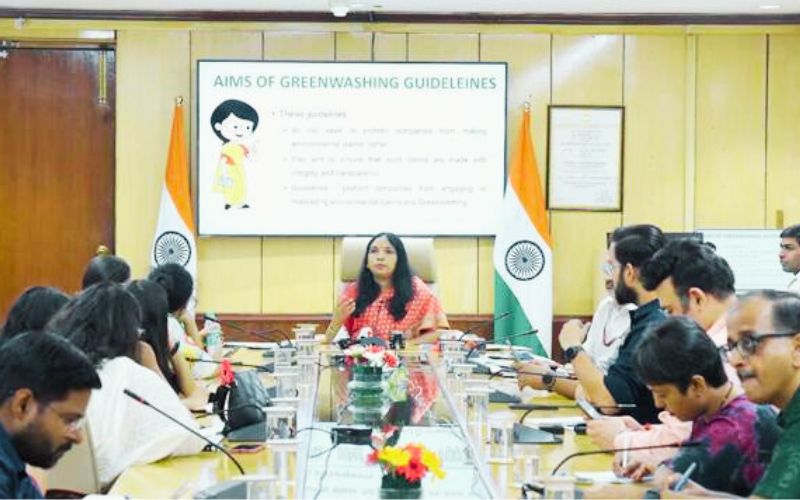These guidelines seek to foster truthful practices and prevent greenwashing and misleading environmental claims. This will enhance consumer trust and encourage sustainable business practices.
Oct 16, 2024

Central Consumer Protection Authority (CCPA) has issued guidelines titled “Guidelines for Prevention and Regulation of Greenwashing or Misleading Environmental Claims, 2024” to address the issue of greenwashing and misleading environmental claims. This decision was informed by Ms. Nidhi Khare, Secretary Department of Consumer Affairs, Government of India, who is also Chief Commissioner of the Authority.
These guidelines seek to foster truthful practices and prevent greenwashing and misleading environmental claims. This will enhance consumer trust and encourage sustainable business practices.
A committee chaired by Ms. Khare, Chief Commissioner of CCPA was constituted on greenwashing. Public suggestions were received from 27 various stakeholders, along with prominent committee members. CCPA after considerations of the suggestions unveiled the guidelines.
The guidelines are drafted in the wake of the rapid increase of advertisement of green products and the growing number of environmentally aware consumers. Many companies and brands use marketing tactics where they falsely claim or exaggerate the environmental benefits of their products or services, often using vague or unsubstantiated terms such as “natural,” “eco-friendly,” or “green.” By creating an illusion of environmental responsibility, many unscrupulous companies end up exploiting consumers’ growing environmental sensitivity.
These guidelines are progressive regulations intended to harmonize the proactive efforts of manufacturers and service providers to address environmental issues and rising consumer interest in environmentally positive goods and services.
Also Read: Hi-Tech Pipes Launches 5 MW Green Power Project
Some of the key features of the guidelines are- clear definitions: the guidelines provide clear definitions of terms related to greenwashing and environmental claims, ensuring that both businesses and consumers have a common understanding; transparency requirements: manufacturers and service providers are required to substantiate their environmental claims with credible evidence; prohibition of misleading terms: the use of vague or misleading terms such as “eco-friendly,” “green,” and “sustainable” without proper substantiation is sought to be prohibited; third-party certifications: these certifications are also accepted in substantiation of environmental claims; adequate disclosures: the companies are required to provide clear and accessible disclosures of material information.
CCPA seeks to work closely with industry stakeholders, consumer organizations, and regulatory bodies to ensure effective implementation and compliance with the guidelines in the interest of consumers and the public.










